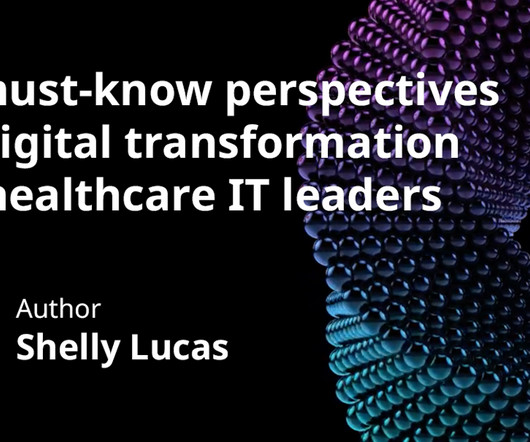AstraZeneca launches Evinova, a health-tech business to accelerate innovation across the life sciences sector, the delivery of clinical trials and better health outcomes
Digital Health Global
NOVEMBER 20, 2023
.–(BUSINESS WIRE)–AstraZeneca today launches Evinova, set to be a leading provider of digital health solutions to better meet the needs of healthcare professionals, regulators and patients. The remaining 40% consists of screening and diagnostics, wellness and disease prevention, supply of therapies and digital pharmacies.













Let's personalize your content